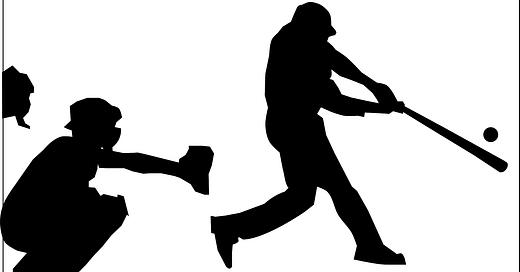On History & Timeline 1700-1900, 1: Why History Matters
Why does history matter? First in a series of 5 posts introducing my series Timeline 1700-1900.
If you’re already a subscriber to this Substack, you probably know the importance of history. But in case you’re just passing by and wondering if you should linger, let me explain why knowledge of history matters, and why Timeline 1700-1900 can help you learn it.
In this introductory series, I’ll cover:
Why does history matter?
How should we study history?
History as a continuum (why Timeline 1700-1900 is decade by decade)
What makes the Timeline unique?
How can you use the Timeline?
Why history matters: a thought experiment
Imagine watching a game you’ve never seen before. There are nine people per team, some of them standing around a grass field, some sitting off to one side. One guy tosses a ball, another tries to whack it with a stick. Sometimes stick-guy hits the ball and runs. Sometimes he doesn’t even try. Sometimes the bystanders cheer. Sometimes they boo. The guys on the field look like they know what they’re doing, but it makes no sense to you if you don’t know the context. In this case, the context is the rules, combined with the skills of the players.
As a spectator, the less you know about any particular sport, the more bored you’re likely to be. This is also true for history. If you have no context, historical events will look like random incidents popping up at random intervals. Why even bother watching?
Let’s up the ante from being bored by pushing the thought experiment further. Although you’re completely ignorant of this game, someone yanks you out onto the field. That ball rushing at you: is it as light as a whiffle ball or as solid as a rock? Should you try to whack it with a stick, catch it, or dodge out of the way?
Your mother, your Reiki practitioner, and your pickleball partner are in the stands shouting at you. “Go!” “Run!” “Stop, idiot!” Do they know any more about this game than you do? If they don’t, should you do what they say anyway, because at least you know them?
Time to translate the thought experiment into real life …
Trying to play baseball without knowing the game is like living through a typical day in the 21st century without having any historical knowledge. You read articles in the New York Times that cover whatever part of the world is most politically explosive or most photogenic. With the speed of an AK-47 on rapid fire, your social media feed gives you stories based on the politics of your Facebook friends or the media’s owners. Your phone indiscriminately pops up ads for politicians, reducing belly fat, and pickleball coaching. Announce that you favor any of those, and several acquaintances will post in shouty caps that YOU ARE WRONG WRONG WRONG.
Yet you have to make choices, and some of those choices have long-term, life-altering consequences. If you don’t have a context for making such choices, you’re in danger – and you may not even see the danger coming. If you want to live happily in the present, you need to understand the past. If you want to change the future, you need to know how we got where we are today.
Next post: Given that history matters, how should we study it?





Glad July is over and hope it was as refreshing and refueling as you needed. Politically it was a bad patch and your history series should give us a deeper understanding of what is happening plus the fuel we need to cope.
Sincerest best wishes for this new project.
Teresa